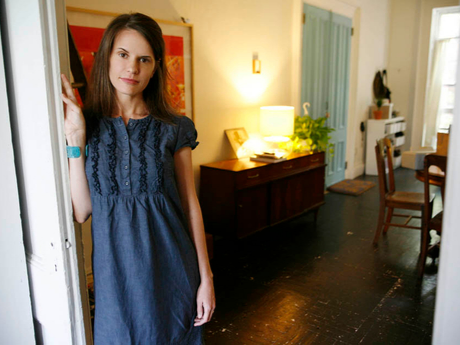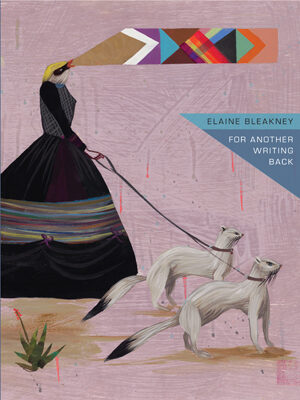In Their Own Words
Elaine Bleakney's “For Another Writing Back”

For Another Writing Back (an excerpt)
Let's call it nowhere. The last day of class and the in-class essay prompt. They take out paper. Can this be casual, one of them asks, like how I'm talking?
Talk to me: a real essay. She should get off her high horse, one of them writes. His notes left on the table after class. Another one texting underneath. She writes the meaner things around his hand. We'll get an F for this! Her bubble-script.
The carousel in the park cranks around a center day and night: lit apart from traffic, the mirrored going, horses tossing heads and necks. They might be asking you to hold what they're feeling, Paul says about the notes. I hand them back with their poem drafts. The student looks up, incredulous; you read this? She flicks him on the arm and says, You better say.
I don't see her walking anywhere. By this time in the semester I'm going back for poems I left out. Why did I leave this one? The speaker walks the inlet, saying what he can and can't see happening. He resists squaring into any one. Lines abrading and weary with force—left open.
What counts as an event where you are? I hold my son on the carousel horse and he waves to the operator. It's the woman today. She waves back grinning each time we pass. He's refreshed. She's changed. She's changed nothing. We disappear.
From For Another Writing Back (Sidebrow Books, 2014). All rights reserved. Reprinted with the permission of the author.
On "For Another Writing Back"
I wrote most of For Another Writing Back during the first year of my son's life. Motherhood created an urgent narrative situation in me: I had to write about my life. I wrote fast—it felt fast—and under the ardent sign of motherhood I chased subjects I'd glossed or abstracted or left out of previous poems. My sentence was the sizzling rope connected to the stick of dynamite under the door in a cartoon—out of time, out of time. Write it! detonating in my ear during my son's naps.
"What counts as an event where you are?" This question to the reader comes from the place where I'm a reader too. In the hard nowhereland of my own writing, I operate in the question. Is a minor cruelty—finding a mean note by my students—something to count? Is it part of the turning world at all? The carousel on the corner was built in 1927 and you could ride it for a dollar. The beauty happened at night when no one was riding. What counts as an event where you are? Who counts? Lately, I'm obsessed with how photographers work within the question.
I'm writing about my life. This is and is not a small-potatoes business. Thankfully, others raise the stakes for me here. There is so much not to know, and how Dickinson or Bishop or Claudia Rankine or Maggie Nelson oscillates between knowing and not-knowing dares me to the page. The poem I mention in this excerpt, too—where "the speaker walks the inlet." He writes:
"I have reached no conclusions, have erected no boundaries,/shutting out and shutting in/separating inside/from outside, I have/drawn no lines…"
—A. R. Ammons, from "Corsons Inlet"



